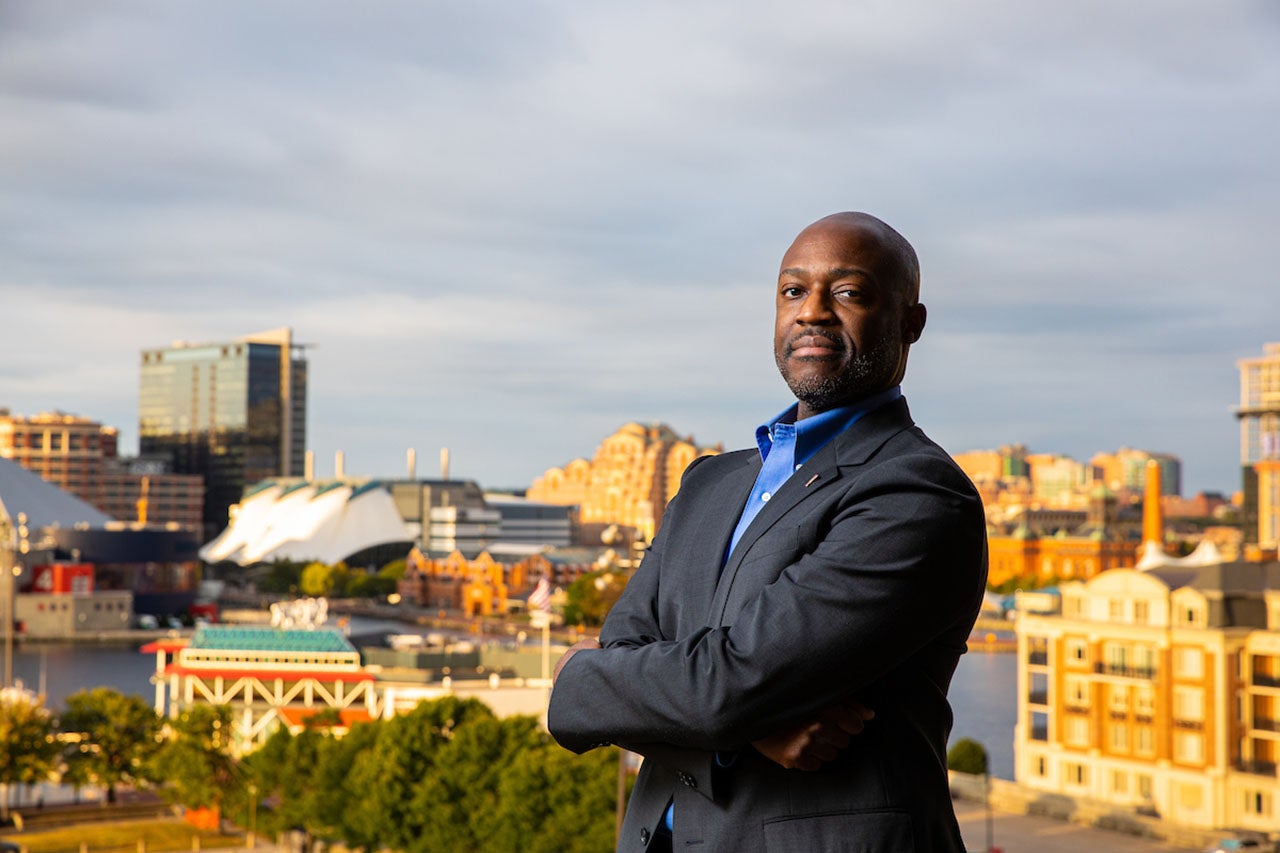It all started with a paper on Alzheimer’s in ninth grade.
“I was fascinated by something that could steal someone’s memory,” says Marvell Adams Jr. ’00. “I knew I wanted to be a doctor and work with older adults.”
After spending a summer at CofC attending the precursor to what is now SPECTRA (Speedy Consolidation and Transition), the West Columbia native decided to attend the College of Charleston in order to take advantage of its pre-med track and its close relationship with the Medical University of South Carolina (MUSC).
“After chemistry and calculus, it was clear I was not going to be a doctor,” says Adams. “Fortunately, my mentor, Lynne Ford, told me I could be impactful on the administrative side.”
Ford, a professor of political science and associate vice president of the academic experience, told Adams he could focus on public policy and administration, which is housed under political science. She also provided him with some suggestions on health care administration graduate degree programs.
Adams went on to get his master’s degree in health care administration from the School of Public Health at the University of North Carolina at Chapel Hill. He credits his political science degree with giving him the foundation for his master’s degree by teaching him about how processes and systems move agendas and policies forward.
Upon graduation, Adams began his career in planned communities, which offer aging residents stages of care and services. “People can come in perfectly healthy, which is independent living, but can move to assisted living or skilled nursing if and when they need it,” explains Adams. At the Kendal Corporation, a nonprofit aging services provider, where Adams is the COO, the cost for care stays roughly the same at every level of service.
Providing the right environment for residents is something that motivates Adams every day. “I want to make an impact, a positive difference in people’s lives,” he says. “To do that, I need to understand what older adults need and want. I have learned that baby boomers want what they want and, like millennials, if they don’t get what they want, they create it for themselves.
“Many boomers are against age segregation,” he adds. “Rather than being walled off, they want intergenerational community living so they don’t lose being around other generations or access to retail stores. It’s about creating a community, not just a retirement community.”
Adams spends about 100 days a year on the road making sure that his clients in the 13 communities he oversees are getting what they need. Currently, he’s working on two new planned communities, one of which is in partnership with the San Francisco Zen Center and will be inspired by Buddhist practices of meditation. The campus, located in Northern California, will also have a boutique hotel, workforce housing and retail shops.
While on the road, Adams also takes time to talk with residents so that he can hear about the unique lives within each community. “I remember a gentleman who came with the idea that this was where he came to die,” he recalls. “But after a few weeks, he said, ‘I get it. I didn’t move here to die. I moved here to live.’ When he realized that this was a new phase of life where he could have momentum for success, I knew the community was creating opportunities for him and others to age successfully.”




